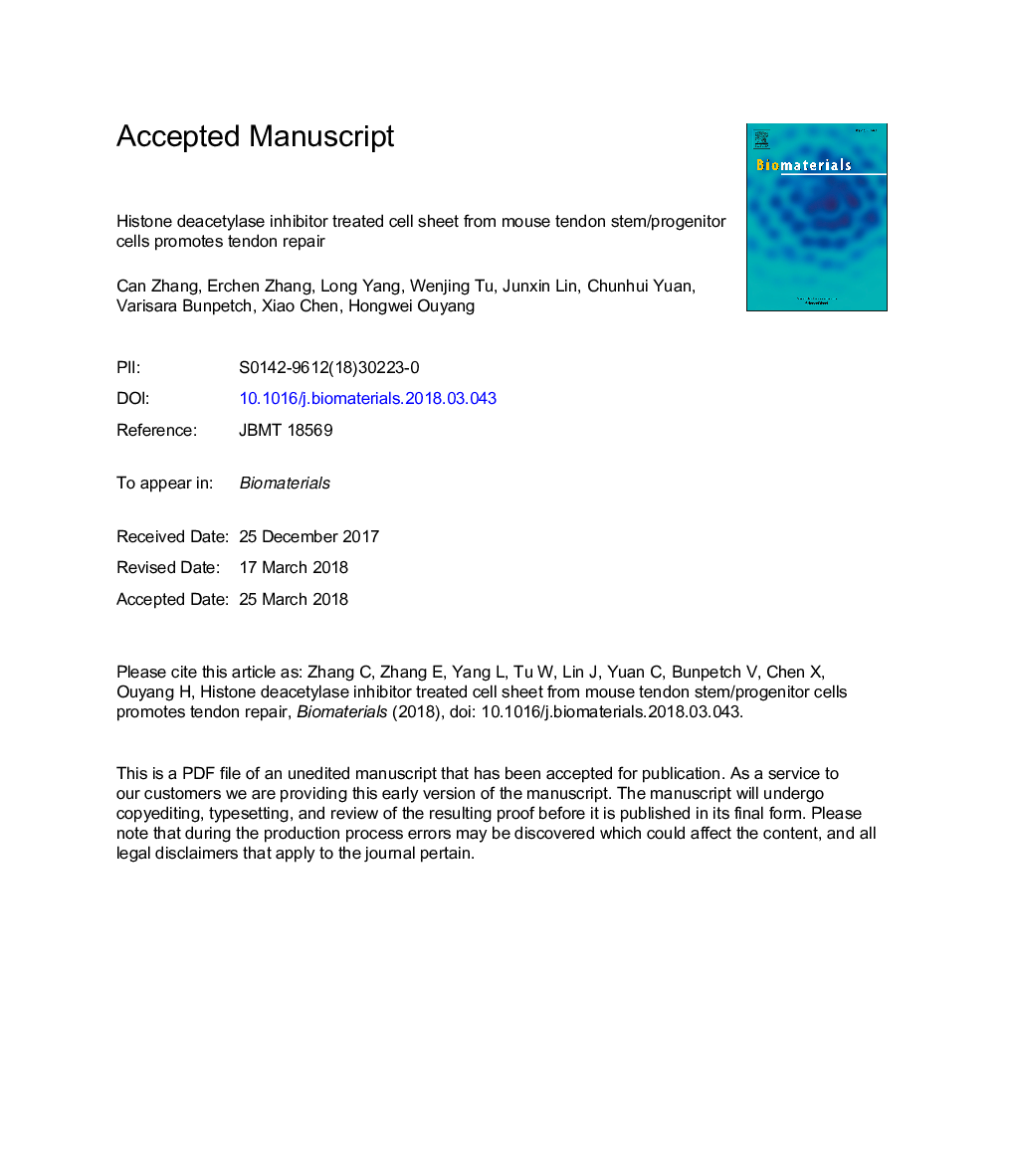| Article ID | Journal | Published Year | Pages | File Type |
|---|---|---|---|---|
| 6484482 | Biomaterials | 2018 | 45 Pages |
Abstract
Tendon stem/progenitor cells (TSPCs) have been identified as a rare population in tendons. In vitro propagation is indispensable to obtain sufficient quantities of TSPCs for therapies. However, culture-expanded TSPCs are prone to lose their phenotype, resulting in an inferior repaired capability. And little is known about the underlying mechanism. Here, we found that altered gene expression was associated with increased histone deacetylase (HDAC) activity and expression of HDAC subtypes. Therefore, we exposed ScxGFP mice-derived TSPCs to HDAC inhibitor (HDACi) trichostatin A (TSA) or valproic acid (VPA), and observed significant expansion of ScxGFP+ cells without altering phenotypic properties. TSA upregulated Scx expression by inhibiting HDAC1 and -3, and increasing the H3K27Ac level of Tgfb1 and -2 genome region. Additionally, cell sheets formed from TSA-pretreated mTSPCs retained the ability to accelerate tendon repair in vivo. Thus, our results uncovered an unrecognized role of HDACi in phenotypic and functional mTSPCs expansion to enhance their therapeutic potential.
Keywords
Related Topics
Physical Sciences and Engineering
Chemical Engineering
Bioengineering
Authors
Can Zhang, Erchen Zhang, Long Yang, Wenjing Tu, Junxin Lin, Chunhui Yuan, Varisara Bunpetch, Xiao Chen, Hongwei Ouyang,
